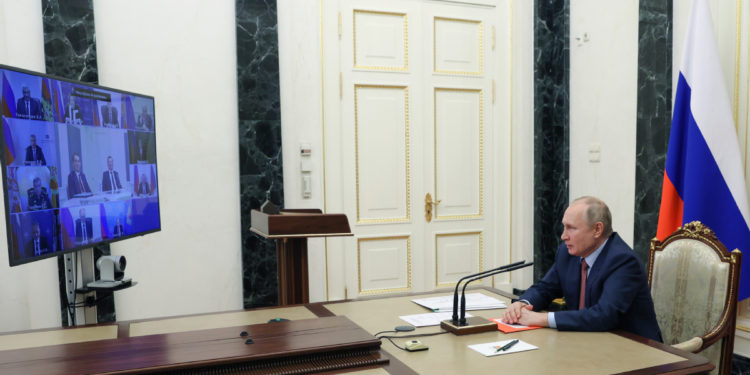The ministry said in a statement that the United States was to blame for the conditions that resulted in Russia’s pullout from the treaty.
“Decades of fruitful implementation of the treaty showed that it has served well as a tool for strengthening confidence and security, creating additional opportunities for an objective and unbiased assessment of the military potential and military activities of the participating states,” the ministry said.
The ministry said that under the treaty, the country had conducted 646 flights and allowed 449 flights to be carried out over its territory. In all, 1,580 flights have been made by the participating countries, it said.
“Unfortunately, all our efforts did not allow us to preserve the treaty as it was intended by its authors,” the ministry said.
“The entire responsibility for the degradation of the agreement lies with the initiator of the collapse of the Treaty on Open Skies: the United States of America.”
After the US’ withdrawal from the treaty in November last year, the Russian Foreign Ministry said in January that the country had started domestic legal procedures for the country’s exit from the treaty. On June 7, Russian President Vladimir Putin signed a law to this effect.
The multilateral pact, which came into effect in 2002, allows the signatory countries to conduct short notice, unarmed reconnaissance flights over the territories of other participating nations to collect data on military forces and activities.
West warned
Also on Saturday, Russia’s Deputy Foreign Minister Sergey Ryabkov said the country may take unspecified measures to ensure its security if the US and its allies continue to take provocative action and ignore Moscow’s demand for guarantees precluding NATO’s expansion to Ukraine.
He accused the Western allies of pushing the envelope in relations with Russia, and warned that Moscow could also up the ante if the West fails to treat its demands seriously.
Ryabkov’s comments, in an interview with Interfax news agency, came a day after Moscow submitted draft security documents demanding that the trans-Atlantic alliance deny membership to Ukraine and other former Soviet countries and roll back NATO’s military deployments in Central and Eastern Europe.
In another development relating to Russia, the US Senate confirmed more than 30 ambassadors and other nominees of US President Joe Biden early on Saturday after the chamber’s majority leader, Chuck Schumer, agreed to schedule a vote on sanctions on the company behind the Nord Stream 2 pipeline that was built to deliver natural gas from Russia to Germany.
With many senators anxious to go home for the holidays, Schumer, a New York Democrat, threatened to keep the Senate in for as long as it took to break a logjam on a broad array of diplomatic and national security nominees.
Source: CD









